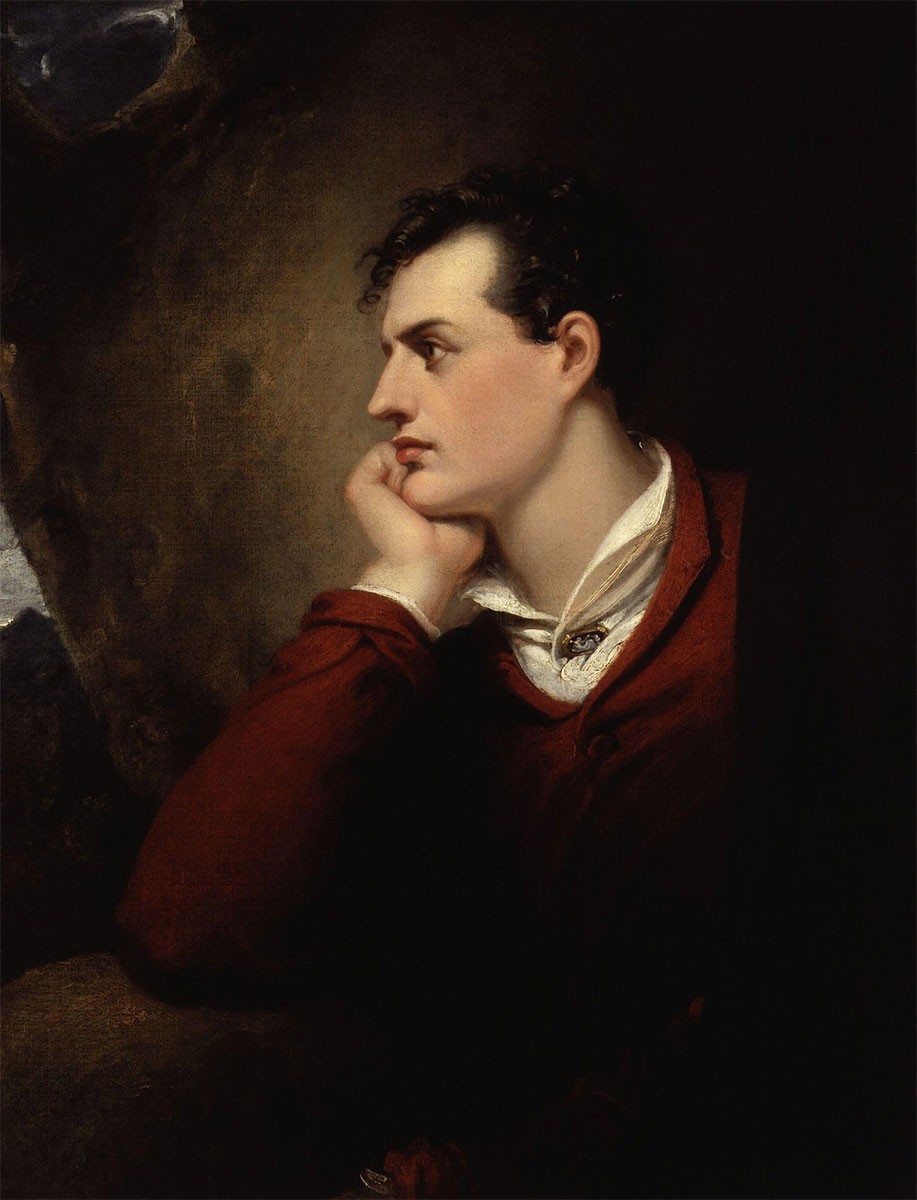
January 14, 1816 - Ada’s father, Lord Byron
Ada was the only legitimate child of Lord Byron. On his deathbed, his regret was that he had never seen Ada, and that she would never know him.
Lord Byron wanted a boy, so when Ada was born he wasn’t thrilled. Lord Byron named his daughter after his half-sister August, who he was apparently having an affair with.
When Ada was only a five weeks old Lord Byron asked his wife to leave their home and stay in the country with her parents. She obliged, but then followed up by filing for legal separation.
“Apparently wounded by the general moral indignation directed at him” (Wolfram), he signed the papers and left England when Ada was only five months old. He never saw Ada again, but “kept a picture of Ada on his desk and famously mentioned her in his poetry” (Wolfram).
Byron inquired about Ada and sent her gifts, including a locket with the inscription in Italian, “Blood is thicker than Water.” He requested that Ada learn music and Italian. When Ada was seven, a year before Lord Byron died, he wrote a letter to his wife asking her for an update:
Is the Girl imaginative?. . . Is she social or solitary—taciturn or talkative—fond of reading or otherwise? and what is her tic? I mean her foible—is she passionate? I hope that the Gods have made her anything save poetical—it is enough to have one such fool in a family.
Lady Byron replied six weeks later just before Ada’s 8th birthday:
Her prevailing characteristic is cheerfulness and good-temper. Observation. Not devoid of imagination, but it is chiefly exercised in connection with her mechanical ingenuity—the manufacture of ships and boats etc. Prefers prose to verse. . . Not very persevering. Draws well. Tall and robust.
According to Miranda Seymour, author of “In Byron’s Wake: The Turbulent Life of Lord Byron’s Wife and Daughter,” Lord Byron’s valet was supposed to carry a message to his wife and child, but apparently he could not recall the message. “Lady Byron … had broken down in sobs during that harrowing visit, weeping until her whole body shook as she begged him—vainly—to recall what her husband’s final message to her had been. By the end of her own life, Annabella had convinced herself that some ‘unuttered’ tender words had been thought, even if they had not been spoken.”


